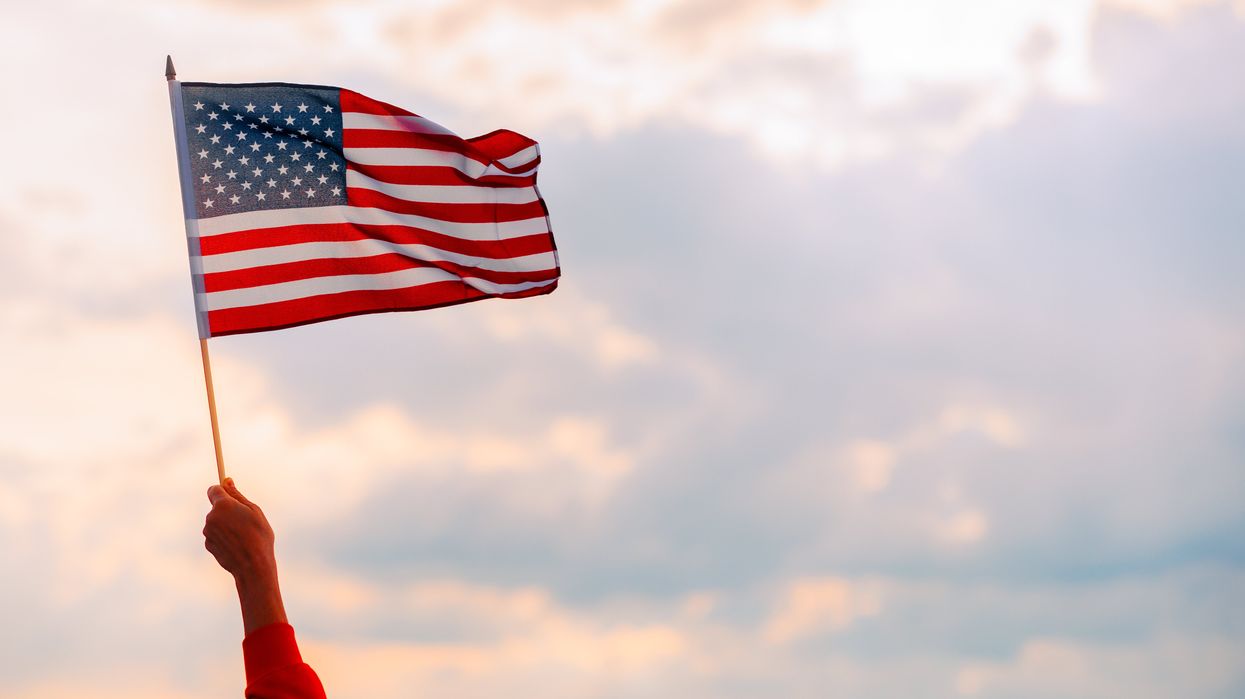Johnson is a United Methodist pastor, the author of "Holding Up Your Corner: Talking About Race in Your Community" and program director for the Bridge Alliance, which houses The Fulcrum.
A seismic shift has occurred in America's race, identity and power discourse. Like tectonic plates beneath the Earth's surface, long-held assumptions are adjusting and giving way to a reimagined lingua franca for civic engagement. This revived language of liberation redefines the terms of debate. It empowers us to reclaim and reinvigorate words once weaponized principally against marginalized communities.
At the forefront of this lexical revolution are concepts like patriotism, exceptionalism and freedom — terms long co-opted by those seeking to uphold a status quo rooted in inequality. Historically, patriotism has been wielded as a bludgeon against those demanding change, branded as "un-American" for daring to question the nation's shortcomings. Exceptionalism, the idea that America is inherently superior to other countries, has fueled hubris and hindered self-reflection. Freedom, a word that should inspire, has been distorted to justify the unchecked pursuit of individual interests at the expense of collective well-being.
Yet, a linguistic wave made of activists, influencers, former school teachers, politicos and their laity is reclaiming these words, imbuing them with the promised radical potential. You and me, we are not just bystanders but a catalytic current in this wave. Patriotism is being redefined as pursuing a more perfect union — a relentless critique of injustice, liberty and a steadfast demand for equity. Exceptionalism gives way to a global perspective recognizing America's flaws and seeking wisdom beyond its borders. Freedom is being reimagined as the collective liberation of all people.
This vision invites us all to be part of the change rather than the unfettered liberty of the privileged few.
Alongside this reclamation, new terms' meanings are emerging to capture the shifting zeitgeist. “Weird” has become a badge of honor and dishonor at the same time. In some contexts, weird rings positively for those embracing the beauty of difference in a society long dominated by homogenous norms. In other contexts, weird is the label of dishonor and shame denoting acts, attitudes or articulations that alienate or are very odd. “Declinist” describes pessimists who mourn a bygone era of unquestioned dominance rather than rolling up their sleeves to build a more equitable future. "Vibe" encapsulates the intangible yet undeniable sense of connectedness and shared purpose that fuels movements for change.
The lexical revolution unfolding before us is not merely an exercise in clever wordplay; it represents a fundamental resistance to narratives that have long justified inequality in our society. This linguistic phenomenon is an act of cultural insurgency, where people wrestle away the power to name their reality from systemic forces committed to preserving the existing social order.
Today's electorate attests that language can reflect and shape our worldview. It is about everyday citizens actively envisioning a world in which everyone has the power to define their place. It is a testament to the power of language as a force for change, and it holds the promise of a more inclusive and equitable future.
Furtherance of liberation language requires mindfulness of words' inherent power to inspire and arrest development. Liberationists of every stripe must continue to challenge, question and actively redefine the terms of our discourse, ever pushing toward a lingua franca that genuinely reflects the radical promise of equality and justice for all.
In reclaiming language, one reclaims one's power and inalienable right to be in the world anew.




















Trump & Hegseth gave Mark Kelly a huge 2028 gift